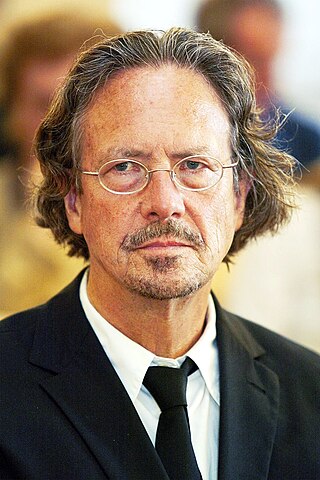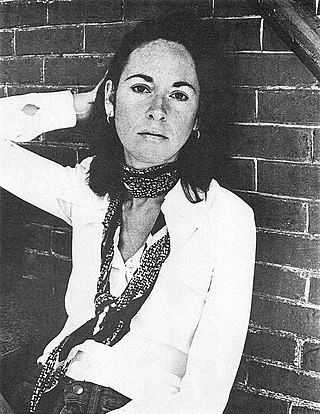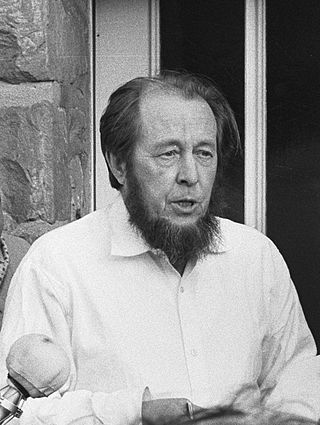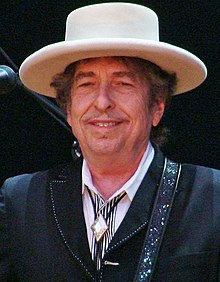
The Swedish Academy, founded in 1786 by King Gustav III, is one of the Royal Academies of Sweden. Its 18 members, who are elected for life, comprise the highest Swedish language authority. Outside Scandinavia, it is best known as the body that chooses the laureates for the annual Nobel Prize in Literature, awarded in memory of the donor Alfred Nobel.

The Nobel Prize in Literature is a Swedish literature prize that is awarded annually, since 1901, to an author from any country who has, in the words of the will of Swedish industrialist Alfred Nobel, "in the field of literature, produced the most outstanding work in an idealistic direction". Though individual works are sometimes cited as being particularly noteworthy, the award is based on an author's body of work as a whole. The Swedish Academy decides who, if anyone, will receive the prize. The academy announces the name of the laureate in early October. It is one of the five Nobel Prizes established by the will of Alfred Nobel in 1895. Literature is traditionally the final award presented at the Nobel Prize ceremony. On some occasions, the award has been postponed to the following year, most recently in 2018 as of July 2023.

The 2019 Nobel Prize in Literature was awarded to the Austrian writer Peter Handke "for an influential work that with linguistic ingenuity has explored the periphery and the specificity of human experience." The prize was announced by the Swedish Academy on 10 October 2019. Handke is the second Austrian Nobel laureate in Literature after Elfriede Jelinek, who won the prize in 2004.

The 2010 Nobel Prize in Literature was awarded the Peruvian writer Mario Vargas Llosa "for his cartography of structures of power and his trenchant images of the individual's resistance, revolt, and defeat." The prize was announced by the Swedish Academy on 7 October 2010. He is the first Nobel laureate in Literature from Peru and the fifth Latin American to become one after 1982 Colombian laureate Gabriel García Márquez and 1971 Chilean laureate Pablo Neruda.

The 2018 Nobel Prize in Literature was awarded to the Polish writer Olga Tokarczuk "for a narrative imagination that with encyclopedic passion represents the crossing of boundaries as a form of life." The prize was announced the following year by the Swedish Academy on 10 October 2019. Tokarczuk is the sixth Nobel laureate in Literature from Poland after the poet Wisława Szymborska in 1996, and Czesław Miłosz in 1980.

The 1982 Nobel Prize in Literature was awarded to the Colombian writer Gabriel García Márquez (1927–2014) "for his novels and short stories, in which the fantastic and the realistic are combined in a richly composed world of imagination, reflecting a continent's life and conflicts."

The 2017 Nobel Prize in Literature was awarded to the British novelist Kazuo Ishiguro "who, in novels of great emotional force, has uncovered the abyss beneath our illusory sense of connection with the world." The prize was announced by the Swedish Academy on 5 October 2017.

The 2006 Nobel Prize in Literature was awarded to the Turkish writer Orhan Pamuk "who in the quest for the melancholic soul of his native city has discovered new symbols for the clash and interlacing of cultures."

The 2020 Nobel Prize in Literature was awarded to the American poet Louise Glück (1943–2023) who the Swedish Academy members praised "for her unmistakable poetic voice that with austere beauty makes individual existence universal." The winner was announced on October 8, 2020, by Mats Malm, permanent secretary of the Swedish Academy. She is the 13th Nobel laureate in Literature from the United States after 2016 laureate Bob Dylan and 1993 laureate Toni Morrison.

The 2022 Nobel Prize in Literature was awarded to the French author Annie Ernaux "for the courage and clinical acuity with which she uncovers the roots, estrangements and collective restraints of personal memory". It was announced by the Swedish Academy on 6 October 2022. Ernaux was the 16th French writer – the first Frenchwoman – and the 17th female author, to receive the Nobel Prize in Literature.

The 2021 Nobel Prize in Literature was awarded to the Tanzanian-born British novelist Abdulrazak Gurnah who the Swedish Academy members praised "for his uncompromising and compassionate penetration of the effects of colonialism and the fate of the refugee in the gulf between cultures and continents." The winner was announced on October 7, 2021, by Mats Malm, permanent secretary of the Swedish Academy.

The 1956 Nobel Prize in Literature was awarded to the Spanish poet Juan Ramón Jiménez (1881–1958) "for his lyrical poetry, which in Spanish language constitutes an example of high spirit and artistical purity" He is the third Spanish recipient of the prize after the dramatist Jacinto Benavente in 1922.

The 1970 Nobel Prize in Literature was awarded to the Russian novelist Aleksandr Solzhenitsyn (1918–2008) "for the ethical force with which he has pursued the indispensable traditions of Russian literature." For political reasons he would not receive the prize until 1974. Solzhenitsyn is the fourth Russian recipient of the prize after Ivan Bunin in 1933, Boris Pasternak in 1958 and Mikhail Sholokhov in 1965.

The 2012 Nobel Prize in Literature was awarded to the Chinese writer Mo Yan "who with hallucinatory realism merges folk tales, history and the contemporary." He is the second Chinese author to win the prize after the exiled Gao Xingjian.

The 2011 Nobel Prize in Literature was awarded to the Swedish poet Tomas Tranströmer (1931–2015) "because, through his condensed, translucent images, he gives us fresh access to reality." He is the seventh Swedish author to become a recipient of the prize after Harry Martinson and Eyvind Johnson who were jointly awarded in 1974.

The 2008 Nobel Prize in Literature was awarded to the French novelist Jean-Marie Gustave Le Clézio, better known with his pen name J. M. G. Le Clézio, as an "author of new departures, poetic adventure and sensual ecstasy, explorer of a humanity beyond and below the reigning civilization." He became the 14th French-language author to receive the Nobel Prize for Literature after Claude Simon in 1985 and was followed later by Patrick Modiano in 2014.

The 1992 Nobel Prize in Literature was awarded to the Saint Lucian poet Derek Walcott (1930–2017) "for a poetic oeuvre of great luminosity, sustained by a historical vision, the outcome of a multicultural commitment." He became the first and only Caribbean writer to be awarded with the prize.

The 2000 Nobel Prize in Literature was awarded to the Chinese émigré writer Gao Xingjian "for an æuvre of universal validity, bitter insights and linguistic ingenuity, which has opened new paths for the Chinese novel and drama." He is the first Chinese recipient of the prize followed by Mo Yan in 2012.

The 1913 Nobel Prize in Literature was awarded to the Bengali polymath Rabindranath Tagore (1861–1941) "because of his profoundly sensitive, fresh and beautiful verse, by which, with consummate skill, he has made his poetic thought, expressed in his own English words, a part of the literature of the West." He is the first and remains only the Indian recipient of the prize. The award stemmed from the idealistic and accessible nature of a small body of translated material, including the translated Gitanjali.

























